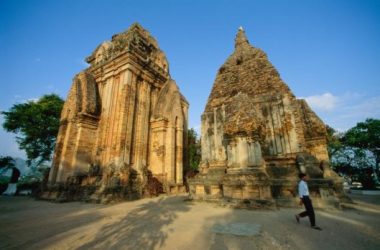Looking into the Past
- Hong Kong was ceded by Qing Dynasty when they were defeated by Great Britain in 1842 after the Treaty of Nanking(1). The emperor at that time negotiated with the British and gave an island which is Hong Kong right now. Yet, later the emperor was executed due to the action.
- In 1984, after years of negotiations, the Sino-British Joint Declaration was declared, thus indicated that Hong Kong will be ‘returned’ to China and will ‘resume’ their sovereignty over the island (2). The result from the negotiation was China agreed to let Hong Kong govern the island in their own way and preserve their autonomy. The Anglo-Chinese agreement resulted to the concept of one country, two systems in China, as the central government had to agree to let Hong Kong preserve its role as the principal capitalist center in Asia.
- Yet, as the exchange for the condition, Hong Kong need to be handed over to China in 1997 and became its Special Administrative Region, thus acknowledging the rule of China’s central government (1). This event resulted to the mass protest of thousands Hong Kong’s civilians that refused to be governed by the communist party.
- However, the first Hong Kong’s chief executive, Tung Chee Hwa had still authorized policy based on the concept of one country, two systems, thus maintaining the capitalist image of Hong Kong (3). Until now, Hong Kong is more liberal in term of its governance than the Mainland, which is more state-centered.
- Historically, Hong Kong and Shanghai are the two important ports for China as they are China’s getaway to the world trade, yet Hong Kong seems to override the great reputation of Shanghai as it seems to embrace the free market.
Back to the Present
- The Umbrella Revolution was led by a high school student, Joshua Wong and the core idea of this movement was inspired by a professor in Hong Kong(4). They bring the idea that a peace revolution of the mass will turn over the central government rule in Hong Kong which is known as color revolution. In this case, the movement is known as the Yellow Umbrella Revolution as umbrella is a metaphor of a shield that protects and gathers people, thus giving a sense of protection.
- The second wave of the movement is happening right now as Hong Kong will have its new election for the next chief executive that acts as the leader of the island in 2017. The controversy occurs as the civilians believe that their right to elect their own executive was denied by the government of China, as they changed the election system for the upcoming election that will favor more to Beijing.
- Before this, the executive was elected by using a voting system where 50% of the votes come from the people and another 50% comes from the corporations, and they had to vote from several candidates that were nominated(4). Thus, the ratio of individual’s vote and the money maker in that country will not be balanced, putting doubts to the system.
- However, for the upcoming election, Beijing had decided to elect their own 3 candidates for the position, thus denying the right for the civilians to choose the candidate that they want, and the corporations will still get a higher portion of the vote(4). This is the reason why the Yellow Umbrella Revolution occurs.
- Yet, the issue becomes more complicated as we can see a direct intervene from the United States through its National Endowment for Democracy that funded one of the NGOs that involved in the Occupy Central occupation. A US$145,000 was channeled through Hong Kong Human Rights Monitor (HKHRM) and it has been reported in their annual report, putting claims that the United States’ attempt to expand its influence of liberal democracy in China’s Special Administrative Region(5). Thus, China’s decision to change the election system of Hong Kong and denying the people’s demand for universal suffrage could be understandable by looking at their effort to protect its influence on Hong Kong from the United States, as those two superpowers are competing in expanding their proxies in Asia.
- In conclusion, the people in Hong Kong are still hoping for their dream to implement universal suffrage until now. The question whether China will tolerate with the people’s demand for liberal democracy in Hong Kong seems to be impossible, yet the power of mass revolution with the ‘help’ from the United States still cannot be denied.
Nur Hanis Mohamad Noor – IRIS’ Analyst







